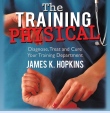Have you ever walked out of a training workshop, a webinar or even after completing an eLearning course and said to yourself, that was a waste of time or pointless? All too often employees are being forced to participate in training that not only do they feel is pointless, but it really was unnecessary for them to attend. Maybe they already had the skills. Maybe it lacked what they really needed to know. Maybe they just didn’t see the purpose. For whatever reason, the time and expense it took to develop and attend this event was pointless to them and probably pointless period.
All company executives, not just the Human Resources Director and the Training Director, should be asking these questions. Is your training a series of pointless events? What do employees say about your training efforts? Do they long for more information, different skills or a more engaging environment for learning?
While we never set out to develop pointless training solutions, pointless workshops or an entire pointless training department, it sadly happens way too often. And each time it does happen, it makes a turnaround that much harder to implement.
I’m writing a book that discusses the big skill areas that most companies should be developing in their employees and how to make a purposeful impact and avoid pointless processes. You no doubt will recognize times you have experienced or implemented pointless training yourself. But while recognizing pointless training is step one, the real learning comes from understanding what you can do differently going forward.
In my first book, The Training Physical: Diagnose, Treat and Cure Your Training Department, I explored what it takes to have and maintain a healthy training function. In this book I continue my training philosophy using similar medical analogies to draw the reader into a quick understanding of how to engage learning and where employees are applauding the training function, learning applicable skills and increasing the effectiveness of the company. Like a bandage on a cut, it has its purpose when used appropriately. But when the cut needs stitches, it is pointless to use a bandage.
